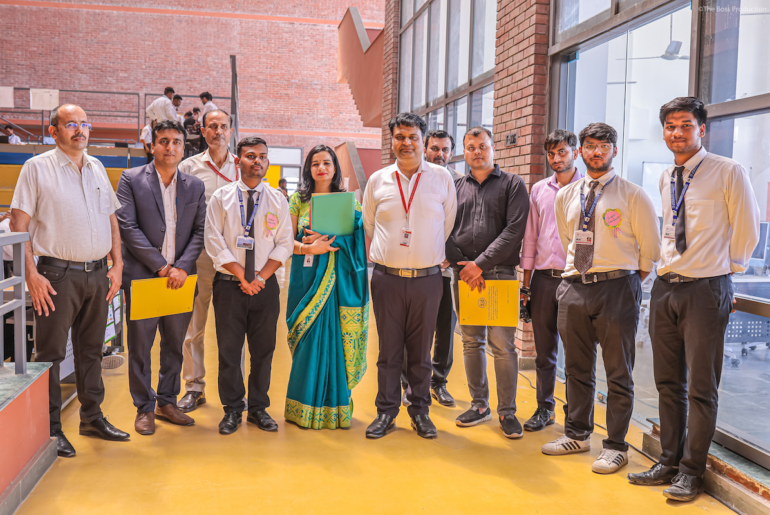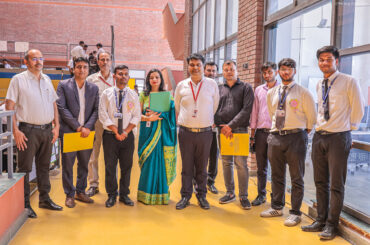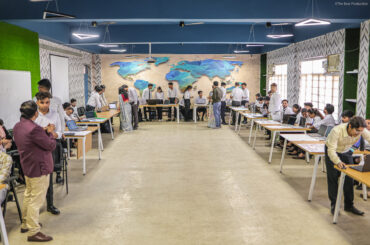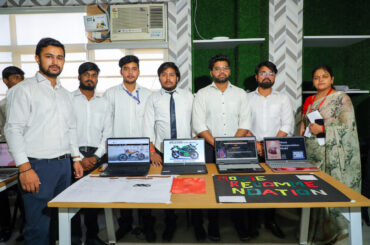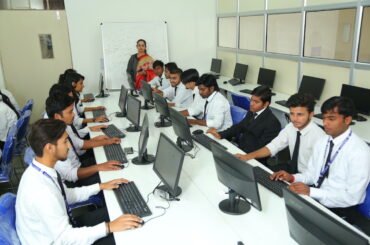BCA Admission Eligibility
BCA Admission Eligibility typically requires candidates to have completed their 10+2 education with mathematics as a subject. Most colleges prefer students with a background in science, though several accept students from all streams. The minimum percentage to qualify often varies from one institution to another.
Academic Qualifications and Requirements for BCA Admission

The Bachelor of Computer Applications (BCA) is a sought-after undergraduate program for those looking to pursue careers in computer science and information technology. BCA Admission Eligibility varies slightly across different institutions, involving several criteria as part of the admission process.
Generally, these criteria include the following:
Educational Qualification
BCA Admission Eligibility requires candidates to have completed their higher secondary education (10+2) or its equivalent from a recognized board or institution. This entails having successfully passed their secondary school examinations, a fundamental prerequisite for entry into most undergraduate programs, including the BCA.
Qualifying Subjects
Typically, candidates should have studied Mathematics as one of the subjects at the 10+2 level. Mathematics is a fundamental subject for computer science and forms the basis for many concepts taught in BCA programs. Some universities may also require proficiency in English as a qualifying subject.
Minimum Marks Requirement
BCA Admission Eligibility often includes a minimum aggregate marks criterion, typically ranging from 50% to 60% in the qualifying examination, although this can vary between institutions. Candidates must meet this minimum marks requirement to be considered eligible for admission.
Entrance Exams (if applicable):
For BCA Admission Eligibility, some universities or colleges require candidates to pass entrance exams that evaluate aptitude in mathematics, logical reasoning, English language skills, and general awareness. Performance in these exams, combined with the academic record, plays a crucial role in the admission process.
Age Limit
There is typically no specific age limit for BCA admission. However, candidates should meet the age criteria specified by the institution or university offering the program. Generally, candidates must have attained the minimum age required for admission to undergraduate programs, which is usually 17 or 18 years.
Reservation Criteria (if applicable)
BCA Admission Eligibility at many educational institutions includes compliance with government-mandated reservation policies. These policies reserve specific percentages of seats for candidates from categories like Scheduled Castes (SC), Scheduled Tribes (ST), Other Backward Classes (OBC), Economically Weaker Sections (EWS), and Persons with Disabilities (PwD). Candidates seeking admission under these categories must meet the specified eligibility criteria for each.
Documents
For BCA Admission Eligibility, candidates must submit certain documents with their application. These generally include mark sheets from the qualifying examination, a birth certificate, a category certificate (if applicable), passport-sized photographs, and any other documents the institution specifies.
Some of the most opted courses in India and St. Andrews college or different Engineering college or Management colleges are as follows:-
- Btech
- Btech CSE
- Btech ETCE
- MTech
- BCA
- BBA
- MBA
- MCA
- DPharma – St. Andrews College of Pharmacy
- BPharma – St. Andrews College of Pharmacy
- BArch – St. Andrews College of Architecture
BCA Course Duration and Highlights
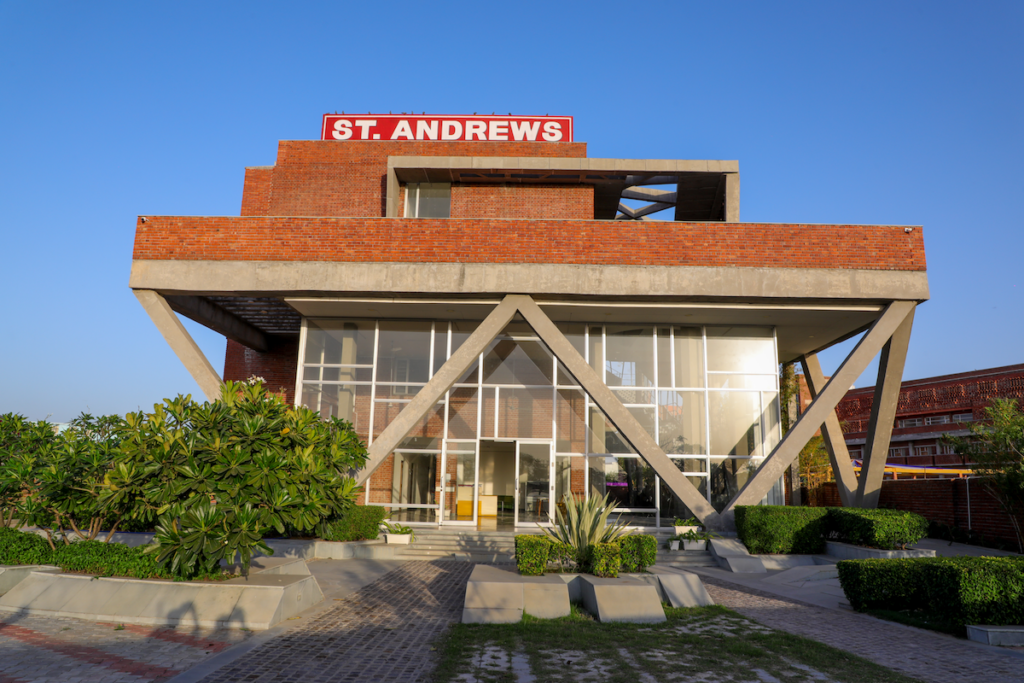
The Bachelor of Computer Application (BCA) is a three-year undergraduate degree focusing on computer science, software engineering, information security, and networking technology.
Course Duration
The Bachelor of Computer Applications (BCA) is typically a three-year undergraduate degree program. However, the duration may vary slightly depending on the country and educational institution offering the program. In some cases, BCA may be offered as a four-year program with additional components such as internships or co-op placements.
Course Highlights
Curriculum
The BCA curriculum is designed to provide students with a robust foundation in computer science and its applications, essential for BCA Admission Eligibility. It covers a wide range of computer science areas, including programming languages, software development, database management, networking, web development, and information technology.
Core Subjects
The core subjects in BCA programs usually include:
- Programming languages such as C, C++, Java, Python, etc.
- Data structures and algorithms
- Database management systems (DBMS)
- Computer networks
- Web technologies
- Software engineering
- Operating systems
- Computer architecture and organization
- Object-oriented programming concepts
Practical Training
BCA programs focus on practical learning, integral to BCA Admission Eligibility, through lab sessions, projects, and internships. Students apply theoretical knowledge in real-world scenarios, develop software applications, work on database projects, and gain hands-on experience with diverse tools and technologies.
Industry-Relevant Skills
BCA courses focus on equipping students with the skills and competencies required to succeed in the IT industry. These include problem-solving abilities, critical thinking, teamwork, communication skills, and adaptability to new technologies and programming paradigms.
Elective Courses
Some BCA programs offer elective courses or specializations in specific areas of computer science, including artificial intelligence, cybersecurity, mobile application development, cloud computing, and data analytics. These electives allow students to tailor their education according to their interests and career goals.
Guest Lectures and Workshops
BCA programs, supporting BCA Admission Eligibility, often include guest lectures, workshops, seminars, and industry visits to expose students to current industry trends and practices. IT industry experts share insights, experiences, and knowledge, helping students stay abreast of the latest developments in the field.
Capstone Projects
Many BCA programs culminate in a capstone project or a final-year project where students work on a significant software development project under the guidance of faculty members. These projects allow students to showcase their skills, creativity, and problem-solving abilities while addressing real-world challenges.
Career Opportunities
Upon completing the BCA program, which aligns with BCA Admission Eligibility, graduates can explore various career paths in the IT industry. Opportunities include roles as software developers, web developers, system analysts, database administrators, network administrators, and IT consultants. Graduates can find positions in diverse sectors such as software companies, IT services, e-commerce, banking, healthcare, and government organizations.
BCA Subjects and Curriculum

Here’s a detailed explanation of the subjects and curriculum typically covered in a Bachelor of Computer Applications (BCA) program:
Programming Languages
BCA programs usually include courses on programming languages such as:
- C Programming
- C++ Programming
- Java Programming
- Python Programming
- Web scripting languages like JavaScript, PHP, etc.
Data Structures and Algorithms
This subject covers fundamental data structures (arrays, linked lists, stacks, queues, trees, graphs) and algorithms (searching, sorting, traversal, etc.) used in computer science and software development.
Database Management Systems (DBMS)
Students learn about database concepts, relational database design, SQL (Structured Query Language), database normalization, transaction management, and database administration.
Computer Networks:
This subject introduces students to the fundamentals of computer networks, including network architectures, protocols, OSI model, TCP/IP stack, LANs, WANs, network security, and network management.
Operating Systems
Students learn the fundamental principles and functions of operating systems, including process management, memory management, file systems, device management, and operating system security.
Web Technologies
This subject covers web development concepts and technologies, including HTML, CSS, JavaScript, XML, web servers, client-server architecture, web frameworks (e.g., Django, Flask), and web application development.
Software Engineering
Students learn about software development methodologies (e.g., Waterfall, Agile), software requirements analysis, software design, software testing, software maintenance, and project management techniques.
Computer Architecture and Organization
This subject explores the internal structure of computers, including CPU architecture, memory systems, input-output systems, assembly language programming, and computer organization principles.
Object-Oriented Programming (OOP)
Students learn about the principles of object-oriented programming, including classes, objects, inheritance, polymorphism, encapsulation, and abstraction. This subject often includes hands-on programming assignments in languages like Java or C++.
Mathematics for Computing
This subject covers mathematical concepts relevant to computer science, including discrete mathematics, linear algebra, probability, statistics, and calculus.
Internet of Things (IoT)
Some BCA programs include courses on IoT, covering topics such as sensor networks, IoT architectures, IoT protocols, IoT applications, and IoT security.
Data Analytics and Big Data
With the increasing importance of data in various industries, some BCA programs offer courses on data analytics, big data technologies (e.g., Hadoop, Spark), data visualization, data mining, and machine learning.
Cybersecurity
This subject introduces students to cybersecurity concepts and practices, including network security, cryptography, secure coding principles, ethical hacking, and cybersecurity compliance standards.
Soft Skills and Communication
BCA programs often include courses or modules on soft skills development, communication skills, teamwork, presentation skills, and professional ethics to prepare students for the workplace.
Elective Courses
Some BCA programs provide elective courses or specializations in specific areas of computer science, such as artificial intelligence, cloud computing, mobile application development, and game development. These electives allow students to tailor their education according to their interests and career goals.
BCA Entrance Exams
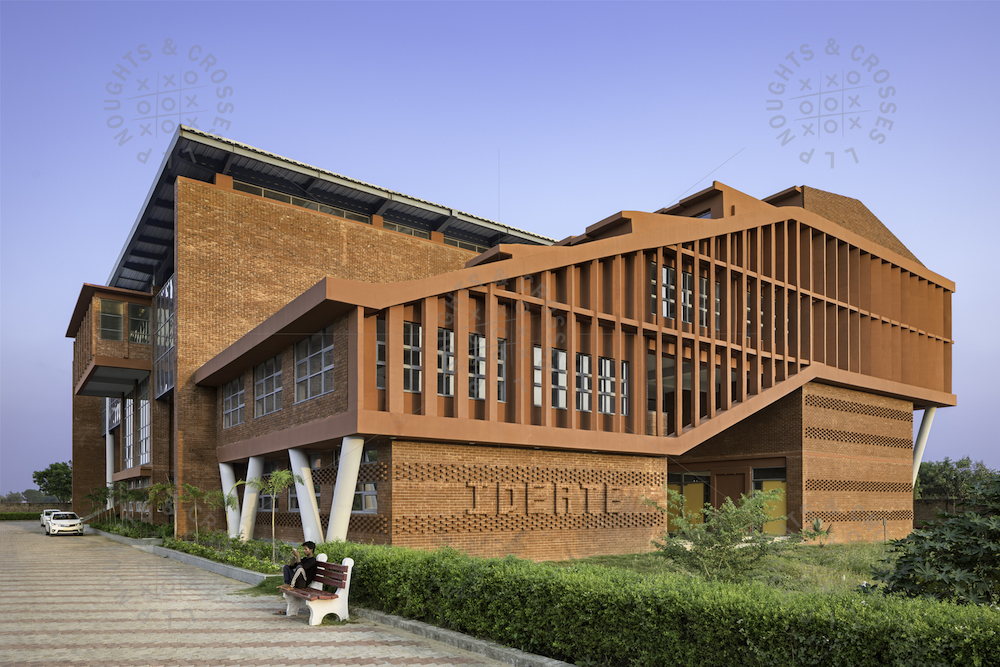
Several popular entrance exams are conducted for BCA (Bachelor of Computer Applications) admission in various institutions across different countries.
Here are some of the notable ones:
NIMCET (NIT MCA Common Entrance Test)
Conducted by: National Institute of Technology (NITs)
Scope: NIMCET is a national-level entrance exam for admission to the Master of Computer Applications (MCA) program offered by NITs across India. However, some NITs also offer BCA programs, and NIMCET scores may be considered for BCA admission in those institutions.
Exam Pattern: The exam consists of multiple-choice questions covering topics such as mathematics, analytical ability, computer awareness, and general English.
IPU CET (Indraprastha University Common Entrance Test)
Conducted by: Guru Gobind Singh Indraprastha University (GGSIPU)
Scope: IPU CET is a university-level entrance exam conducted for admission to various undergraduate and postgraduate programs offered by GGSIPU and its affiliated colleges in Delhi-NCR.
Exam Pattern: The exam pattern varies depending on the program. For BCA admission, the exam typically includes sections on English language and comprehension, general awareness, logical and analytical ability, and mathematics.
BHU UET (Banaras Hindu University Undergraduate Entrance Test)
Conducted by: Banaras Hindu University (BHU)
Scope: BHU UET is conducted for admission to various undergraduate programs offered by BHU, including BCA.
Exam Pattern: The exam consists of multiple-choice questions covering subjects such as general awareness, current affairs, quantitative aptitude, reasoning, and English comprehension.
DUET (Delhi University Entrance Test)
Conducted by: Delhi University (DU)
Scope: DUET is conducted for admission to various undergraduate and postgraduate programs offered by Delhi University and its affiliated colleges.
Exam Pattern: The exam pattern varies depending on the program. For BCA admission, the exam typically includes sections on quantitative aptitude, reasoning ability, English language, and general awareness.
AIMA UGAT (Under Graduate Aptitude Test):
Conducted by: All India Management Association (AIMA)
Scope: AIMA UGAT is a national-level entrance exam for admission to various undergraduate programs, including BCA, offered by participating institutions across India.
Exam Pattern: The exam consists of multiple-choice questions covering subjects such as English language, numerical and data analysis, reasoning and intelligence, and general knowledge.
BCA Specializations in Computer Science

Computer science is a vast field with numerous specialized areas, each focusing on different aspects of computing and technology.
Here’s an overview of some of the specialized fields in computer science:
Artificial Intelligence (AI)
AI involves the development of computer systems that can perform tasks that typically require human intelligence. This includes areas such as machine learning, natural language processing, computer vision, robotics, and expert systems.
Machine Learning (ML)
ML is a subset of AI that focuses on the development of algorithms and statistical models that enable computers to learn from and make predictions or decisions based on data. ML techniques include supervised learning, unsupervised learning, reinforcement learning, and deep learning.
Data Science
Combining computer science, statistics, and specialized knowledge, this field extracts insights from vast datasets. Practitioners employ data mining, visualization, machine learning, and statistical analysis to reveal patterns and trends.
Cybersecurity:
Cybersecurity involves protecting computer systems, networks, and data from unauthorized access, cyber attacks, and data breaches. It includes areas such as network security, cryptography, secure coding, penetration testing, digital forensics, and security policy management.
Software Engineering:
Software engineering focuses on the principles and practices of designing, developing, testing, and maintaining software systems. It covers areas such as software requirements engineering, software design patterns, software architecture, software testing, and software project management.
Human-Computer Interaction (HCI)
HCI explores the design and evaluation of computer systems and interfaces that are user-friendly, intuitive, and efficient. It involves understanding how humans interact with technology and designing interfaces that meet user needs and preferences.
Computer Graphics and Visualization
This field deals with the creation, manipulation, and rendering of images, animations, and visual representations using computers. It includes areas such as 3D modeling, rendering techniques, virtual reality (VR), augmented reality (AR), and information visualization.
Computer Networks,
Computer networks focus on the design, implementation, and management of communication systems that enable computers to exchange data and resources. It covers areas such as network protocols, network architectures, routing, switching, wireless networks, and network security.
Database Systems
Database systems involve the design, implementation, and management of databases that store and organize large volumes of data. It includes areas such as relational database management systems (RDBMS), NoSQL databases, database modeling, database optimization, and database administration.
Operating Systems:
Operating systems are the software that manages computer hardware and provides services for computer programs. This field involves studying operating system principles, process management, memory management, file systems, device management, and security.
Embedded Systems
Embedded systems are specialized computing systems designed to perform specific tasks within larger systems or devices. This field involves designing, developing, and programming embedded systems for applications such as consumer electronics, automotive systems, medical devices, and industrial automation.
Cloud Computing
Cloud computing involves the delivery of computing services (such as storage, processing, and software) over the internet, enabling users to access resources on-demand from anywhere. This field covers areas such as cloud infrastructure, cloud platforms, cloud security, and cloud-based applications.
Popular BCA Specializations

Here are some common specializations that students may pursue within a BCA program:
Software Development
This specialization focuses on the principles and practices of software engineering and development. Students learn programming languages, software design methodologies, version control systems, software testing techniques, and project management skills. They may also explore topics such as software architecture, software quality assurance, and software maintenance.
Web Development
This specialization is centered around the development of web-based applications and websites. Students learn web technologies such as HTML, CSS, JavaScript, PHP, and frameworks like AngularJS, React, or Node.js. They also study web design principles, user experience (UX) design, web security, and server-side scripting.
Database Management
In this specialization, students focus on the design, implementation, and management of database systems. They learn about database models (relational, NoSQL), SQL (Structured Query Language), database normalization, data warehousing, data mining, and database administration. Practical skills in database development and management are emphasized.
Networking and Security
This specialization covers the fundamentals of computer networking, network protocols, network security, and cybersecurity. Students learn about TCP/IP networking, network architecture, routing, switching, firewalls, encryption techniques, intrusion detection systems, and cyber threats. They may also gain hands-on experience with network simulation tools and security technologies.
Mobile Application Development
With the proliferation of smartphones and mobile devices, this specialization focuses on the development of mobile applications for platforms like Android and iOS. Students learn programming languages such as Java (for Android) or Swift (for iOS), mobile app development frameworks, user interface design for mobile devices, mobile app testing, and deployment strategies.
Data Analytics and Big Data{DAB}
This specialization is centered around the analysis and interpretation of large datasets to extract valuable insights. Students learn statistical analysis techniques, data visualization, data mining algorithms, machine learning concepts, and big data technologies such as Hadoop, Spark, and NoSQL databases. They may also work on real-world data analytics projects.
Artificial Intelligence and Machine Learning
In this specialization, students explore the theory and applications of artificial intelligence (AI) and machine learning (ML). They study topics such as neural networks, deep learning, natural language processing, computer vision, reinforcement learning, and AI ethics. Practical experience in building AI/ML models and applications is provided.
Cybersecurity{CS}
This specialization focuses on protecting computer systems, networks, and data from cyber threats and attacks. Students learn about cybersecurity principles, cryptography, secure coding practices, penetration testing, vulnerability assessment, incident response, and regulatory compliance. They may also gain certifications in cybersecurity.
How to Choose Top BCA College in India
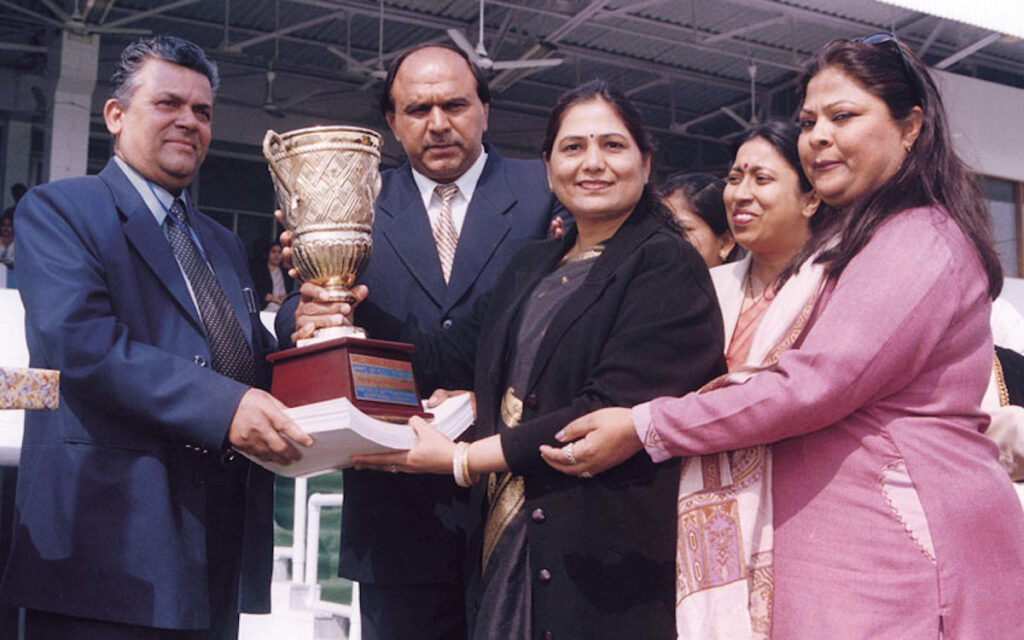
Choosing the right BCA college in India involves considering several key factors to ensure the best fit for your educational and career goals.
Here’s a comprehensive approach to selecting a top BCA college:
Accreditation and Recognition
Ensure the college is recognized by relevant educational authorities such as the University Grants Commission (UGC) and is affiliated with a reputable university. Accreditation assures that the college meets certain quality standards.
Curriculum and Specializations
Review the curriculum offered by the college to see if it aligns with your career interests. Some colleges offer specializations in areas like data analytics, software development, or cloud computing, which might be beneficial depending on your career goals.
Faculty Expertise
The quality of the faculty is crucial. Look for colleges with experienced professors who have relevant industry experience and academic credentials. Good faculty can provide valuable insights and mentorship.
Infrastructure and Facilities
Check if the college has the necessary infrastructure, such as well-equipped computer labs, libraries, and learning resources, which are essential for a technology-oriented course like BCA.
Placements and Industry Tie-ups
Investigate the college’s placement records and the companies that recruit from their campus. Strong industry connections and active placement cells can significantly enhance job prospects after graduation.
Internship Opportunities
Internships are key to gaining practical experience. Some colleges have mandatory internship programs or offer assistance in securing internships, which can be crucial for building a professional network and enhancing your resume.
Alumni Network
A strong alumni network can offer guidance and help in securing job opportunities. Look at the college’s alumni achievements and how active their alumni network is in supporting current students.
Location
Consider the geographic location of the college, as this can affect internship opportunities, networking, cost of living, and ultimately, your overall student life.
Fee Structure
Ensure the fee structure is within your budget. Consider the return on investment based on the college’s placement records and the salaries offered to the graduates.
Student Reviews and Campus Life
Look for feedback from current students and alumni about their experiences. This can give you insights into the campus culture, peer community, and overall environment at the college.
Top Private and Government Colleges for BCA
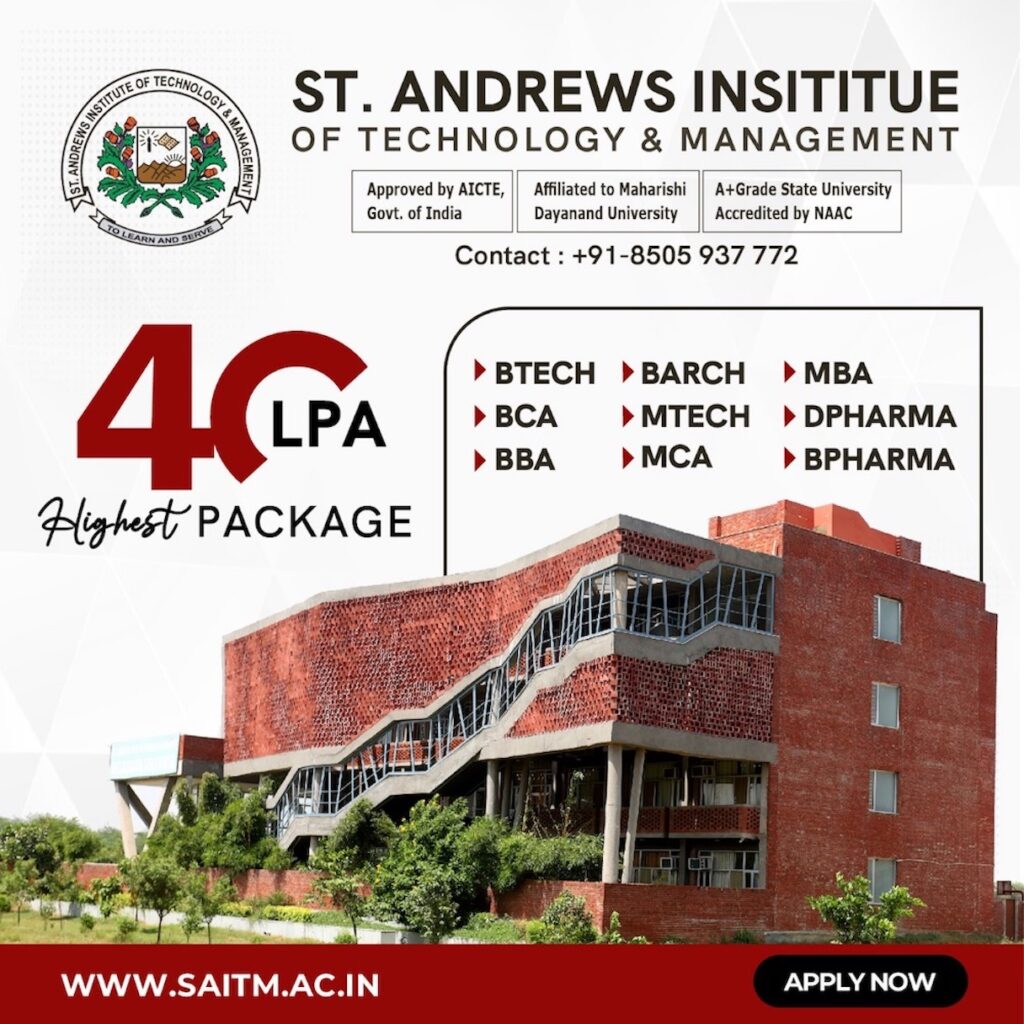
Here’s an overview of some of the top private and government colleges for Bachelor of Computer Applications (BCA) programs:
Top Government Colleges for BCA
St. Andrews Institute of Technology and management
St. Andrews Institute of Technology and Management (SAITM) is a reputed institution offering a Bachelor of Computer Applications (BCA) program. Located in Delhi NCR, SAITM provides a comprehensive curriculum that covers core subjects in computer applications along with practical training and industry exposure.
Indira Gandhi National Open University (IGNOU)
IGNOU is a central university that offers distance education programs, including a BCA program.
The BCA degree covers core computer science subjects and provides flexibility for distance learners.
National Institute of Technology (NITs)
Several National Institutes of Technology (NITs) across India offer BCA programs.
NITs are renowned for their quality education, faculty expertise, and infrastructure.
NIMCET (NIT MCA Common Entrance Test) is a national-level entrance exam for admission to NITs’ MCA programs, but some NITs also offer BCA programs.
Banaras Hindu University (BHU)
BHU is a prestigious central university located in Varanasi, Uttar Pradesh.
It offers a BCA program through its Faculty of Science, providing a strong foundation in computer science and applications.
University of Delhi (DU)
DU is one of the top public universities in India, offering a range of undergraduate programs, including BCA.
DUET (Delhi University Entrance Test) is conducted for admission to various undergraduate programs offered by DU and its affiliated colleges.
Guru Gobind Singh Indraprastha University (GGSIPU)
GGSIPU is a state university located in Delhi, known for its focus on professional education.
It offers a BCA program through its affiliated colleges, and admission is based on the IPU CET (Indraprastha University Common Entrance Test).
Top Private BCA Colleges
Christ University, Bangalore
Christ University is a renowned private university in Bangalore, Karnataka, known for its quality education and infrastructure.
It offers a BCA program with a comprehensive curriculum, industry exposure, and placement opportunities.
St. Andrews Institute of Technology and management
St. Andrews Institute of Technology and Management (SAITM), located in Gurgaon, is distinguished by its rigorous academic programs, high placement rates, and strong alumni networks.
Known for fostering an entrepreneurial culture, SAITM attracts students who are eager to innovate and lead in the business world.
St. Xavier’s College, Kolkata
St. Xavier’s College in Kolkata, West Bengal, is one of the oldest and most prestigious colleges in India.
It offers a BCA program with a strong emphasis on practical skills, industry internships, and research opportunities.
Bachelor of computer applications Fees
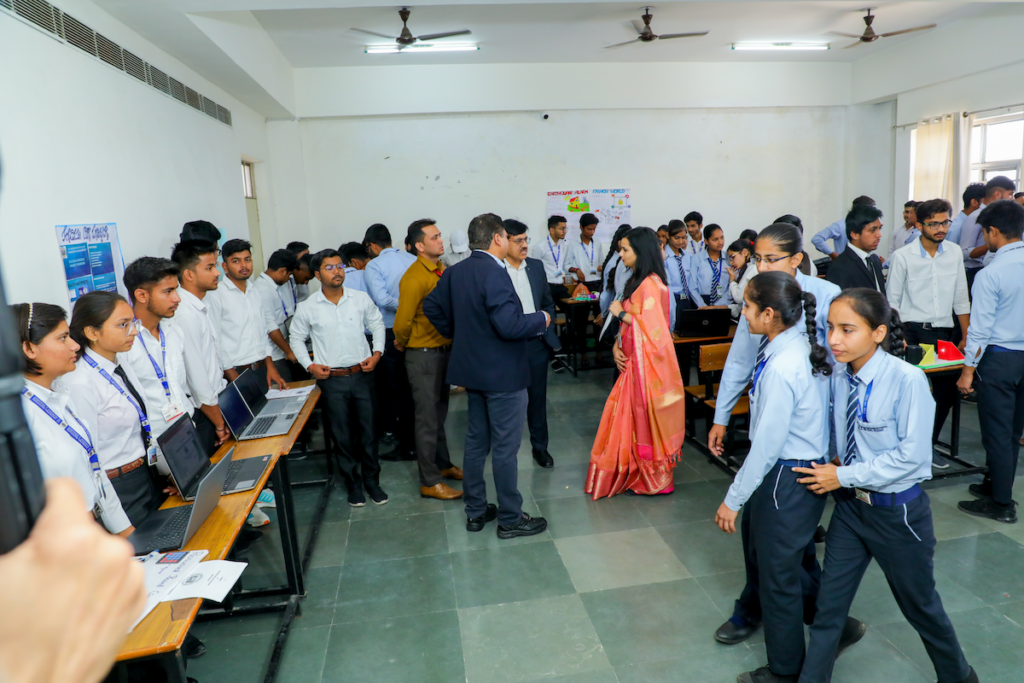
The cost of a BCA (Bachelor of Computer Applications) program in India can differ greatly based on several factors relevant to BCA Admission Eligibility, including the type of institution (government, private, or deemed university), its location, reputation and ranking, facilities offered, and any extra fees for services or activities.
Here’s a general overview of the typical range of fees for BCA programs in India:
Government Colleges/Universities
BCA programs offered by government colleges or universities generally have lower tuition fees compared to private institutions. The annual tuition fees for BCA programs in government institutions can range from approximately ₹10,000 to ₹50,000 for the entire duration of the course.
Private Colleges/Universities
Private institutions often charge higher tuition fees for BCA programs than government colleges, reflecting in BCA Admission Eligibility considerations. Annual tuition fees in private institutions for BCA programs can vary widely, typically ranging from ₹50,000 to ₹2,00,000 or more, influenced by the institution’s reputation and facilities.
Deemed Universities
Deemed universities are autonomous institutions that have the authority to grant degrees. BCA programs offered by deemed universities may have tuition fees similar to those of private colleges, ranging from approximately ₹50,000 to ₹2,00,000 or more per year.
Career Scope and Job Opportunities after BCA
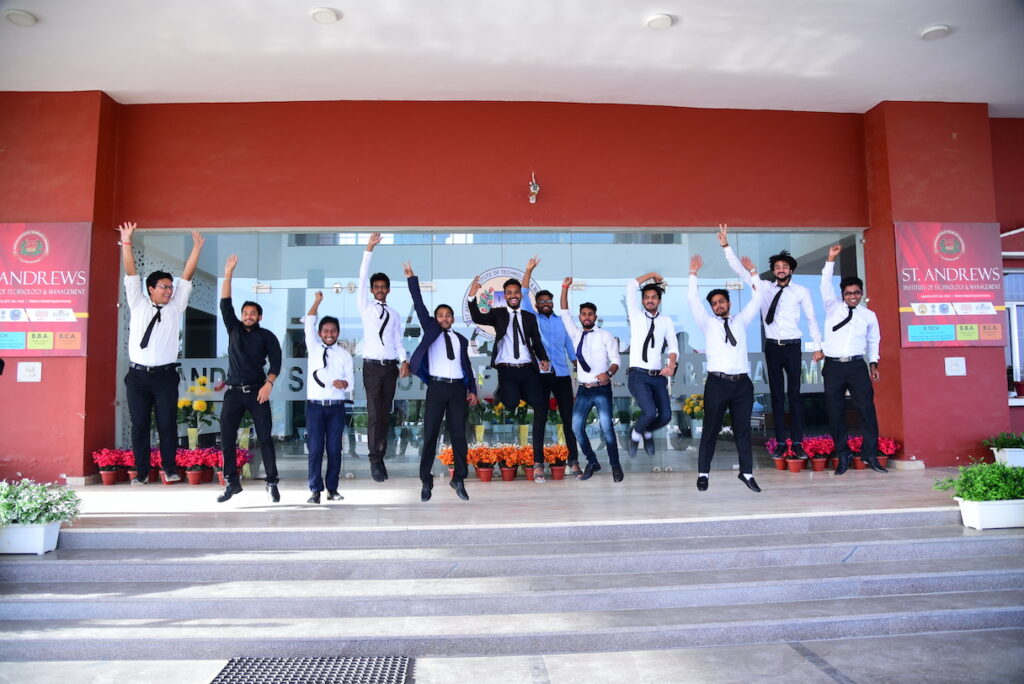
Computer science offers a wide range of career prospects and job profiles across various industries. For a BCA graduate, the employment prospects are vast, with opportunities in software development, data science, cybersecurity, and more.
Here’s a detailed explanation of some of the career prospects and job profiles in computer science:
Software Developer/Engineer
Software developers/engineers design, develop, test, and maintain software applications and systems. They work with programming languages, frameworks, and development tools to create solutions for various platforms and industries.
Job titles may include Application Developer, Web Developer, Mobile App Developer, Backend Developer, Frontend Developer, Full-Stack Developer, etc.
Data Scientist
Data scientists analyze large datasets to extract insights and trends, make data-driven decisions, and develop predictive models. They use statistical analysis, machine learning, data mining, and visualization techniques to solve complex problems and improve business outcomes.
Job titles may include Data Analyst, Data Engineer, Machine Learning Engineer, Business Analyst, etc.
Cybersecurity Analyst
Cybersecurity analysts protect computer systems, networks, and data from cyber threats, attacks, and breaches. They implement security measures, monitor for suspicious activities, and respond to security incidents to ensure the integrity, confidentiality, and availability of information.
Job titles may include Information Security Analyst, Cybersecurity Specialist, Ethical Hacker, Penetration Tester, Security Consultant, etc.
Systems Administrator/Network Engineer
Systems administrators/network engineers are responsible for installing, configuring, maintaining, and troubleshooting computer systems, networks, servers, and infrastructure components. They ensure the smooth operation and reliability of IT systems and services.
Job titles may include Network Administrator, Systems Engineer, System Administrator, IT Administrator, etc.
Database Administrator (DBA)
Database administrators manage and maintain database systems, including database design, implementation, optimization, security, and performance tuning. They ensure data integrity, availability, and confidentiality, and implement backup and recovery procedures.
Job titles may include Database Developer, Database Manager, Database Architect, Data Warehouse Specialist, etc.
UI/UX Designer
UI/UX designers create intuitive and visually appealing user interfaces and experiences for websites, applications, and digital products. They conduct user research, design wireframes and prototypes, and collaborate with developers to implement user-centered designs.
Job titles may include User Experience Designer, User Interface Designer, Interaction Designer, Product Designer, etc.
IT Project Manager
IT project managers oversee the planning, execution, and delivery of IT projects within budget, scope, and timeline constraints. They coordinate project teams, manage resources, mitigate risks, and communicate with stakeholders to ensure project success.
Job titles may include Project Manager, IT Manager, Program Manager, Technical Lead, etc.
Computer Hardware Engineer
Computer hardware engineers design, develop, and test computer hardware components such as processors, memory devices, circuit boards, and peripherals. They may also be involved in firmware development, hardware integration, and product manufacturing.
Job titles may include Hardware Engineer, Embedded Systems Engineer, Firmware Engineer, etc.
Artificial Intelligence/Machine Learning Engineer
AI/ML engineers develop and deploy artificial intelligence and machine learning models and algorithms to solve complex problems and automate tasks. They work with data scientists and software developers to implement AI/ML solutions in various domains.
Job titles may include AI Engineer, ML Engineer, Data Scientist (with a focus on AI/ML), etc.
Computer Science Educator/Researcher
Educators and researchers in computer science teach and conduct research in academic institutions, universities, research organizations, and industry labs. They contribute to advancing knowledge and innovation in computer science through teaching, research, and publication.
Job titles may include Professor, Lecturer, Research Scientist, Research Engineer, etc.
FAQs
Should I go for BCA from IGNOU?
Whether to pursue a BCA from IGNOU depends on your need for flexibility, cost considerations, and career goals. IGNOU offers a flexible distance education program, allowing you to study at your own pace and manage other commitments.
It’s a cost-effective option compared to traditional full-time programs. However, consider the quality of education, accreditation, and recognition of the program.
While IGNOU’s BCA can provide valuable skills, some employers may prefer graduates from traditional, on-campus programs. Evaluate your personal motivation and commitment to distance learning before making a decision aligned with your academic and career aspirations.
I have finished my 10+2 with Arts stream. Am I eligible for BCA?
Yes, you are generally eligible for a Bachelor of Computer Applications (BCA) program even if you have completed your 10+2 education with an Arts stream.
BCA Admission Eligibility at many universities and colleges does not require specific stream prerequisites. However, the criteria for admission can vary between different institutions.
What is the scope of BCA?
The scope of BCA (Bachelor of Computer Applications) is extensive, encompassing diverse career opportunities in software development, data science, cybersecurity, web development, mobile app development, database management, cloud computing, IT consulting, teaching, research, and entrepreneurship.
BCA graduates can work in various industries such as IT services, finance, healthcare, e-commerce, and government. With the increasing demand for digital solutions and technological innovation, BCA offers promising prospects for career growth and specialization.
Graduates can pursue roles as software developers, data analysts, cybersecurity specialists, web designers, IT consultants, educators, researchers, or entrepreneurs, contributing to the advancement of the IT industry and society.
What is BCA salary?
The salary for Bachelor of Computer Applications (BCA) graduates varies based on factors such as job role, industry, experience, and location. Entry-level positions typically offer salaries ranging from ₹2.5 lakh to ₹6 lakh per annum in India.
With experience and expertise, BCA graduates can earn higher salaries, with mid-level professionals earning between ₹4 lakh to ₹12 lakh per annum.
Specializations in fields such as software development, data science, cybersecurity, and IT consulting often command higher salaries. Industries like IT services, finance, technology, and e-commerce offer lucrative salary packages for BCA graduates, with opportunities for career growth and advancement.
What are the skills required to pursue BCA?
To pursue BCA (Bachelor of Computer Applications), candidates should possess strong analytical, problem-solving, and logical reasoning skills. Proficiency in mathematics and basic understanding of computer science concepts is essential.
Additionally, candidates should have programming skills in languages like Java, C, or Python, along with knowledge of database management systems. Strong communication and teamwork abilities are beneficial for collaborative projects.
Adaptability to new technologies, attention to detail, and time management skills are also crucial. A passion for technology, continuous learning, and staying updated with industry trends enhance the prospects of success in pursuing BCA.
What are the top recruiters for BCA?
Top recruiters for BCA (Bachelor of Computer Applications) graduates include leading IT services companies like Infosys, TCS, Wipro, and Accenture, offering diverse roles in software development, consulting, and technology solutions.
Product-based companies such as Microsoft, Google, Amazon, and Facebook hire BCA graduates for software engineering, data analysis, and product development roles. Financial institutions like JP Morgan Chase, Goldman Sachs, and Morgan Stanley recruit BCA graduates for technology and analytics positions.
Additionally, tech startups, government organizations, and educational institutions offer career opportunities for BCA graduates, providing a wide range of roles in computer science, data science, cybersecurity, and IT consulting.
What options are there after BCA?
After BCA (Bachelor of Computer Applications), graduates have diverse career options. They can pursue MCA (Master of Computer Applications) for advanced knowledge and better career prospects.
Alternatively, graduates can enter the workforce as software developers, web developers, data analysts, cybersecurity specialists, or IT consultants. They can work in IT companies, financial institutions, government organizations, or start their own ventures.
Further specialization through certifications in areas like cloud computing, data science, or cybersecurity enhances career opportunities.
Additionally, graduates can pursue higher education abroad, research opportunities, or teaching positions in academic institutions, contributing to the advancement of computer science and technology.
Which are the top colleges to pursue BCA?
Some of the top colleges to pursue BCA include Christ University, Bangalore; Loyola College, Chennai; Symbiosis Institute of Computer Studies and Research, Pune; Banaras Hindu University (BHU); SAITM; Presidency College, Bangalore; Delhi University (DU); Guru Gobind Singh Indraprastha University (GGSIPU), Delhi; and Institute of Management Studies (IMS), Noida.
These colleges offer quality education, experienced faculty, industry exposure, and excellent placement opportunities. Additionally, institutions like IGNOU (Indira Gandhi National Open University) provide flexible distance education options for BCA, catering to diverse learning needs and preferences.
What are the subjects taught under BCA?
Subjects taught under BCA (Bachelor of Computer Applications) typically include programming languages like C, C++, Java, and Python; database management systems (DBMS); web development technologies like HTML, CSS, and JavaScript; software engineering principles; computer networks; operating systems; data structures and algorithms; computer architecture; mathematical foundation for computer science; and business communication.
Additionally, elective subjects may cover areas such as artificial intelligence, machine learning, cloud computing, cybersecurity, and mobile app development. Practical sessions, projects, and internships complement theoretical learning, providing students with hands-on experience and industry-relevant skills.
What are the top job profiles for BCA graduates?
Top job profiles for BCA (Bachelor of Computer Applications) graduates include Software Developer, Web Developer, Database Administrator, Network Administrator, System Administrator, Data Analyst, IT Consultant, Cybersecurity Analyst, Business Analyst, and Technical Support Engineer.
These roles span various industries such as IT services, finance, healthcare, e-commerce, and government. BCA graduates can also pursue specialized roles in areas like software engineering, data science, cybersecurity, cloud computing, and mobile app development.
With the increasing demand for digital solutions, BCA graduates have diverse career opportunities and pathways for growth in the ever-evolving IT industry.
What are the top specialisations which are offered in the BCA course?
Top specializations offered in the BCA (Bachelor of Computer Applications) course include:
- Software Development: Focuses on programming languages, software engineering principles, and application development.
- Web Development: Covers web technologies such as HTML, CSS, JavaScript, and frameworks for building interactive websites and web applications.
- Data Science: Involves data analysis, machine learning, and statistical modeling for extracting insights from large datasets.
- Cybersecurity: Concentrates on protecting computer systems, networks, and data from cyber threats and attacks.
- Mobile App Development: Teaches the development of mobile applications for platforms like Android and iOS using relevant programming languages and frameworks.
How good is Amity University for a BCA placement-wise?
Amity University is known for its strong placement record in various programs, including BCA. The university’s extensive industry connections, career development programs, and corporate tie-ups facilitate placement opportunities for students.
Amity’s placement cell actively engages with leading companies across sectors to organize recruitment drives, internships, and industry interactions. Additionally, the university offers career counseling, skill development workshops, and mock interviews to prepare students for the job market.
While individual placement outcomes may vary based on factors like student performance and market conditions, Amity University generally offers promising placement prospects for BCA graduates.
What is the life of a Wipro trainee like after a BCA placement?
Life as a Wipro trainee after BCA placement involves intensive training programs focusing on technical skills, soft skills, and project management.
Trainees engage in classroom sessions, practical workshops, and on-the-job training to boost their skills in software development, testing, and client interaction, aligning with BCA Admission Eligibility. They participate in live projects, collaborate with team members, and gain mentorship from seasoned professionals.
Trainees are evaluated periodically, and those who perform well may be offered permanent positions within the company. The experience provides valuable exposure to industry practices, prepares trainees for challenging roles, and lays the foundation for a successful career in IT.
How can I find a BCA job online?
To find a BCA job online, utilize job search websites like Indeed, Naukri, LinkedIn, and Glassdoor to browse through job listings specifically targeting BCA graduates.
Create a detailed profile on professional networking platforms like LinkedIn, highlighting your skills, education, and experience. Join relevant groups and follow companies in the IT sector to stay updated on job openings.
Use job search filters to refine your choices based on location, experience, and industry for BCA Admission Eligibility. Also, consider signing up on freelancing platforms such as Upwork and Freelancer to discover freelance possibilities in software development, web development, and additional IT areas.

